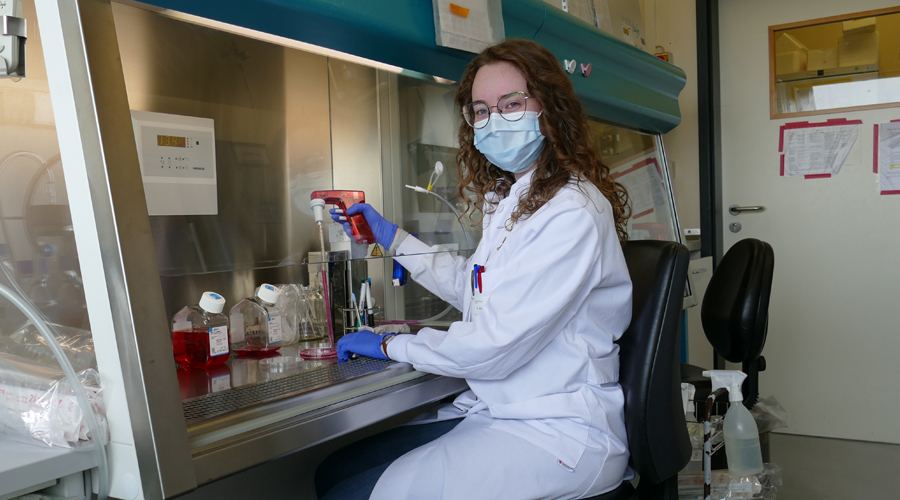Here we go: On 20 April 2022, the first doctoral student will travel to Glasgow for two months as part of the “Hannover-Glasgow Infection Strategy” (HAGIS). Franziska Hüsers from the research group of Prof. Dr Beate Sodeik from the MHH Institute of Virology will learn a method there in the team of Dr Chris Boutell at the “MRC-University of Glasgow Centre for Virus Research” (CVR), which she needs for her doctoral thesis.
So far, Franziska Hüsers only knows Scotland as a holidaymaker, but she has already gained experience abroad during a four-month internship in London. “I like the international atmosphere, which I also know well from our MHH team, and I am looking forward to living for a time where others go on holiday,” she says. Her work revolves around the herpes simplex virus and in particular the human cell protein MxB. Her task is to investigate whether this protein can disassemble the protective capsules (capsids) of herpes viruses in cells, and in which cell types this mechanism is active. With the new method she is now learning, the genome of the herpes viruses can be specifically labelled before its incorporation into the capsids and its possible release from the capsids in infected cells can be tracked. This should clarify at which stages in the infection cycle the cell protein MxB attacks the capsids.
Franziska Hüsers will already be on site when several RESIST researchers travel to Glasgow on 29 April to meet with the CVR team for a joint symposium.
HAGIS was launched in August 2021 by RESIST and the CVR. The aim is to conduct research together on a permanent basis, complementing each other and thus advancing the development of new therapies for infectious diseases and enabling doctoral students to benefit from the combined research strengths of the two sites. The Lower Saxony Ministry of Science and Culture is providing financial support for HAGIS. According to current plans, a joint DFG application for an international research training group will be submitted from 2023.
The photo shows Franziska Hüsers in a laboratory at MHH Virology at a workbench.

